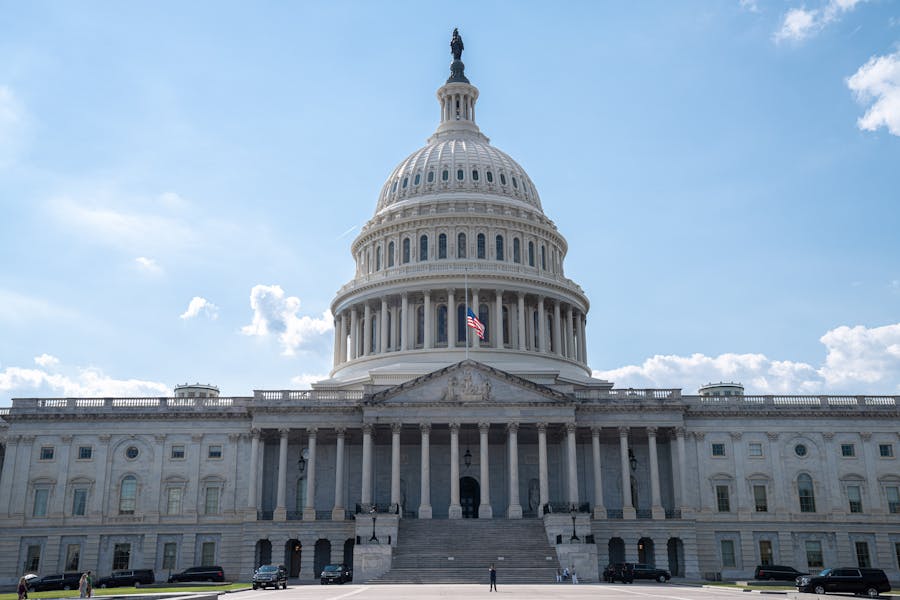In a contentious move on the Senate floor, Sen. Tom Cotton (R-Ark.) blocked the passage of the Protect Reporters from Exploitative State Spying Act (PRESS Act), a groundbreaking bill designed to provide federal protections for journalists. Cotton’s objection, citing concerns over national security, has halted what would have been the first federal press shield law in the United States, a significant milestone for press freedom.
The PRESS Act passed the House of Representatives in January with overwhelming bipartisan support and was set to shield journalists from being compelled by federal authorities to disclose confidential sources. The legislation included exceptions for cases involving acts of terrorism or immediate national security threats and extended protections to freelancers, citizen journalists, and independent publishers. Despite its widespread backing, Cotton stood alone in his opposition, calling the bill a potential risk to national security and an unwarranted privilege for the press.
“The liberal media doesn’t deserve more protections,” Cotton declared during a brief but pointed speech on the Senate floor. “The press badge doesn’t make you better than the rest of America or put you above the law.” He criticized the media for what he described as years of misconduct, claiming the industry had lost the American people’s trust. “For several years, the media has conducted itself in a disgraceful manner and destroyed its reputation with the American people. Now Congress wants to give it more privileges,” Cotton argued.
Cotton’s stance aligns with that of President-elect Donald Trump, who last month publicly called on Senate Republicans to block the bill. Trump, who has frequently criticized the media throughout his political career, labeled the legislation as overly accommodating to journalists.
The PRESS Act had received broad support from senators across the political spectrum, including Ron Wyden (D-Ore.), Dick Durbin (D-Ill.), Mike Lee (R-Utah), and Lindsey Graham (R-S.C.). Senate Majority Leader Chuck Schumer (D-N.Y.), who championed the bill, emphasized the importance of protecting the press to safeguard democracy. Schumer argued that a free and thriving press is essential for holding governments accountable, exposing abuse, and ensuring an informed public. “No democracy can survive without a free and open and thriving press,” Schumer said in his floor speech. “When there are too few protections for journalists, our democracy is at the very real risk of eroding.”
Wyden, one of the bill’s co-sponsors, underscored its bipartisan nature and the broad consensus it had achieved. “This is about as bipartisan as you can get,” Wyden said, noting that the bill had earned support from figures as diverse as conservative pundit Tucker Carlson and the entire House of Representatives. Wyden lamented the setback but vowed to continue fighting for the legislation, stating, “This is just about as important as it gets. Free speech is fundamental to what makes our country so special.”
Cotton’s objections were not new. He had previously blocked the bill, prompting amendments to address his national security concerns. Despite the adjustments, Cotton maintained that the PRESS Act posed unacceptable risks. “I think America would be stronger and freer if we were passing this legislation,” Wyden said after Cotton’s latest objection. “But we’ll be back.”
With limited exceptions, the PRESS Act’s provisions would have barred federal authorities from using subpoenas, search warrants, and other compulsory actions to force journalists to reveal their sources. It also sought to provide protections for journalists in legal disputes with private companies, further strengthening press freedom. While many states already have shield laws, the PRESS Act would have established the first federal standard.
The debate over the PRESS Act comes amid high-profile cases highlighting the challenges journalists face. Catherine Herridge, a veteran journalist formerly of CBS News and Fox News, was recently held in contempt by a D.C. court for refusing to disclose the identity of a confidential source in a story involving a Justice Department investigation. Herridge faced an $800-per-day fine for her defiance, underscoring the stakes for reporters who rely on anonymous sources to uncover critical stories.
The failure to pass the PRESS Act also raises broader questions about the balance between press freedom and national security. Advocates argue that protections for journalists are essential for upholding democratic values and ensuring transparency, while critics like Cotton see the bill as potentially undermining security and accountability. Schumer warned that failing to protect the press could lead to a chilling effect on journalism, pointing to examples of press suppression in countries like Hungary, where the government has curtailed media freedoms.
Cotton’s decision to block the bill has sparked a heated debate about the role of the press in modern America. His criticism reflects a broader sentiment among some conservatives that the media has overstepped its bounds and should not be granted additional privileges. Meanwhile, supporters of the PRESS Act argue that safeguarding journalists is essential for maintaining an informed and free society.
As Cotton prepares to take on a leadership role as chair of the Senate Intelligence Committee, his opposition to the PRESS Act highlights the challenges of reconciling press freedoms with concerns over national security. For now, the bill’s future remains uncertain. Schumer and Wyden have pledged to revisit the legislation in the next congressional session. Still, they face an uphill battle navigating the political and ideological divides that have come to define debates over press freedom in the United States.
The PRESS Act’s failure underscores the ongoing tension between the press and government in a polarized era. Advocates remain hopeful that the legislation can eventually clear the Senate with further adjustments and renewed efforts. The battle for federal protections for journalists continues, leaving the press and its supporters determined to push forward in the fight for press freedom.


